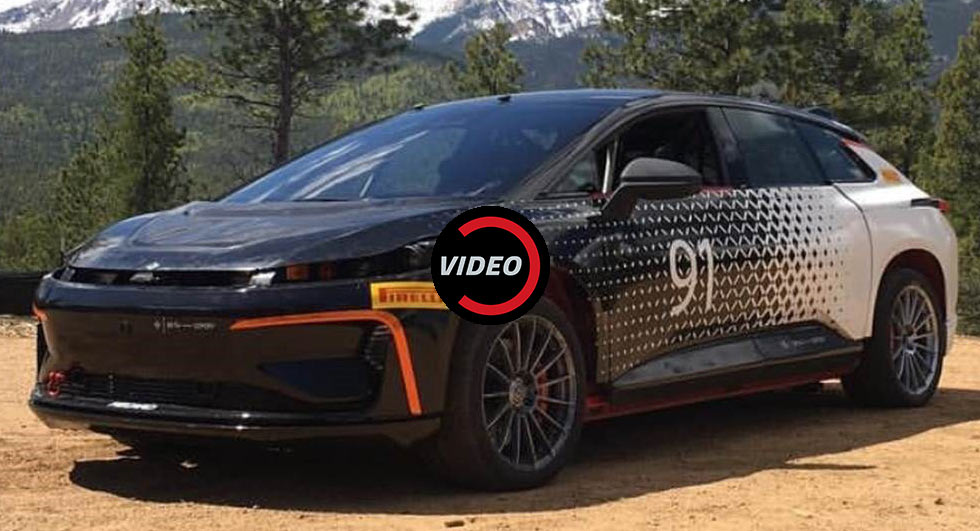Faraday Future continues to face an uphill battle to get the FF 91 on the road next year but the company has reaffirmed its commitment to compete in the Pikes Peak International Hill Climb.
Designed to bring a “new level of transparency to testing,” Faraday Future says it will become the first original equipment manufacturer of electric vehicles to participate in the event. The latter claim seems somewhat dubious as Nissan set an initial record in the electric vehicle production class six years ago when a Leaf completed the hill climb in 14 minutes and 33 seconds.
Putting that aside, Faraday Future will run a FF 91 prototype in the Exhibition Class and the company says the model will have “production representative hardware and software with tweaks required to run at Pikes Peak.” The car will be driven by Robin Shute who is the Principal Engineer at Faraday Future.
According to Faraday Future’s Senior Vice President of Research and Development, Nick Sampson, “The hill climb on Pikes Peak serves as the ideal setting to further develop the electric propulsion system and supporting thermal systems of FF 91. Testing the performance of FF 91 in real-world conditions sets the bar even higher as we bring the vehicle to market in 2018.”
To highlight the company’s involvement, Faraday Future is launching a new video series called “Testing the FF 91.” It will explore the company’s efforts to “bring a new species of electric mobility to the market.”
Update: Faraday Future came in contact with us to clarify that, in regards to the statement on being the first electric vehicle OEM to participate in Pikes Peak ,“In the press release, we specifically stated that Faraday Future is the first EV OEM to bring a vehicle, meaning we are the first OEM producing only EV vehicles.”
We think they could have worded their press release better, and we quote: “Faraday Future (“FF”) today confirmed that it will be participating in the 95th running of the Pikes Peak International Hill Climb, the first EV OEM to do so.” It does not say EV-only OEM, which would have eliminated Nissan – not that it really makes a difference…




